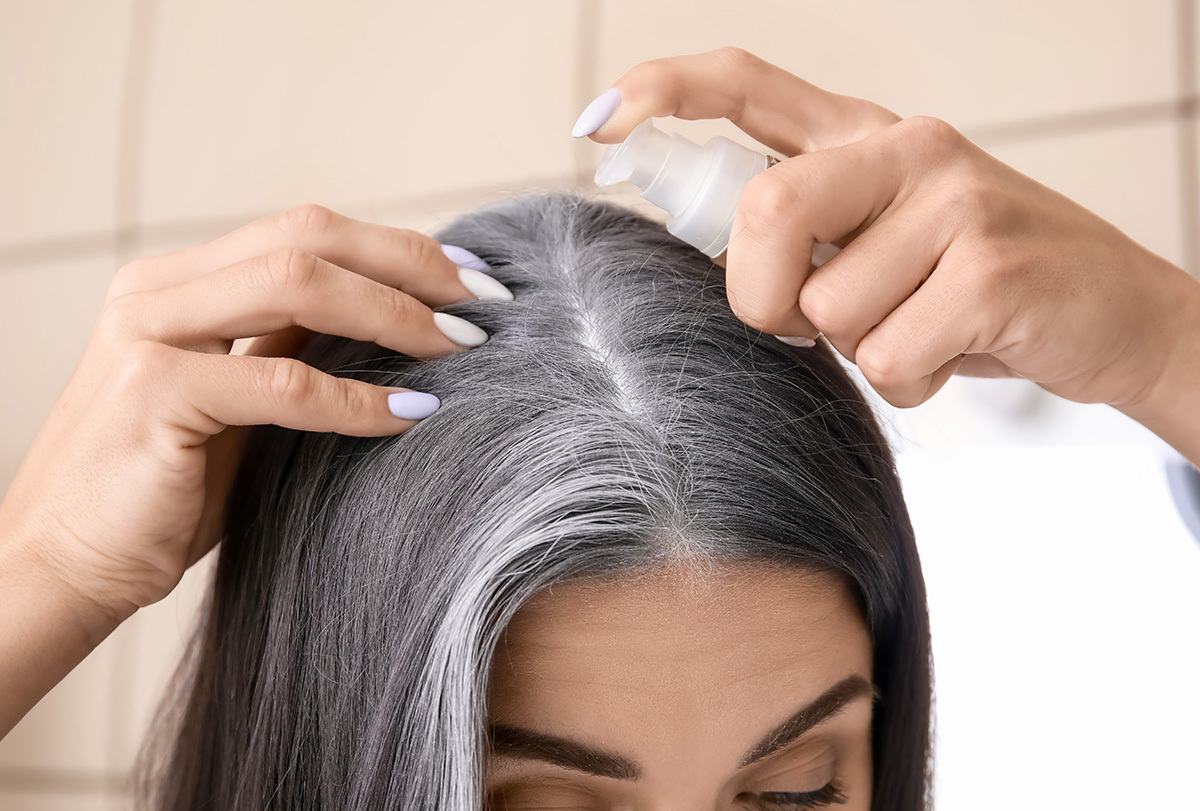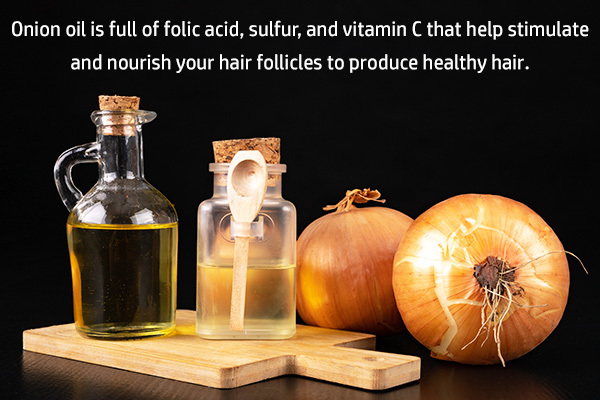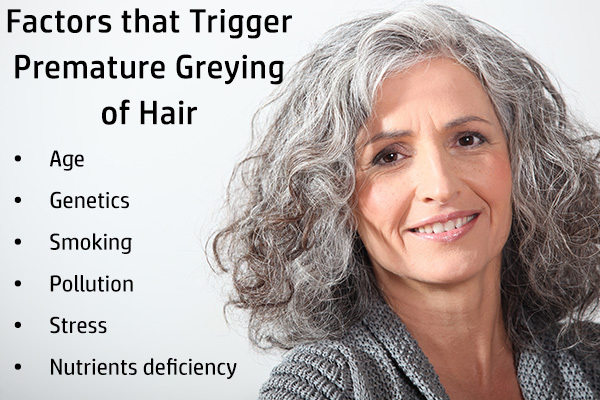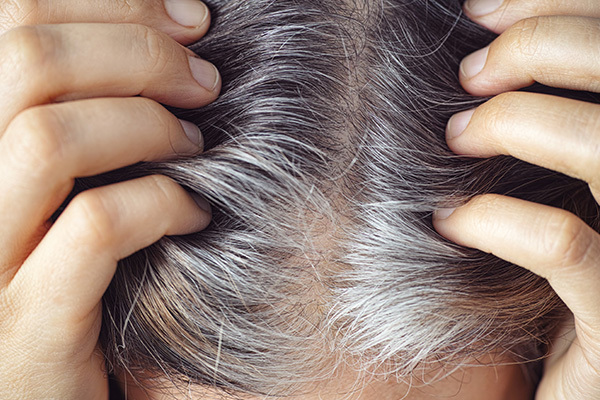In this article:
Graying of hair is natural and inevitable, but it becomes a problem for some people when it happens prematurely. Most people get their first grays during their 30s or 40s, (1) but some get them sooner.

The hair gets its color from the same pigment compound that is responsible for skin tone called melanin. More melanin leads to darker hair, while a lack of it leads to gray hair. There is a natural decline in the production of melanin within the hair follicle as a person grows older. (2)
Once your hair turns gray, there is no way to restore its color. Most people resort to hair dyes to cover their grays, but these products are filled with chemicals that greatly damage hair quality over repeated use.
So, when it comes to hair graying, prevention is the best and only cure. You can’t avoid the problem altogether, but there are things you can do to delay or minimize it.
Onion oil is one ingredient that can help prevent premature graying while also offering an array of other hair benefits. No wonder it has become such a hair care favorite and is widely used in hair products as well.
Onion Oil for Gray Hair

Onion oil is good for your hair in more ways than one. It is full of folic acid, sulfur, and vitamin C (3) that help stimulate and nourish your hair follicles to produce healthy hair. It is also credited with antibacterial and antifungal properties that help ward off scalp infections. (4)
It is specifically the rich sulfur content found in onions that help prevent premature hair graying. It does so by triggering the production of glutathione, a potent antioxidant enzyme that helps increase catalase levels within the hair follicles.
As discussed earlier, this catalase enzyme helps neutralize the hydrogen peroxide produced within the hair follicles to prevent it from destroying the melanin-producing cells. (5)
If there isn’t enough catalase to break down the hydrogen peroxide, this chemical compound will collect inside the hair follicle and start damaging the melanocytes. Fewer melanocytes mean less melanin, which will make your hair gradually lose its color and turn gray, silver, or white.
DIY Onion Hair Oil
Here’s how to make and use DIY onion hair oil to help delay graying of hair.
How to make:
- Blend 7–8 onions to extract their juice.
- Grind 2–3 onions to make a smooth paste.
- Put a heavy-bottomed pot on the stove, pour in 1 cup coconut oil along with the onion juice and paste, and mix all the ingredients well.
- Turn on the burner, and let the mixture come to a boil. Keep whisking throughout and lower the heat as needed.
- Turn off the stove after half an hour, and set the pot aside until the mixture cools down completely.
- Strain the mixture through a muslin cloth to collect the onion oil in a container.
How to use:
- Gently massage the onion oil on your scalp and hair and leave it on overnight.
- Wash it off the next morning with a mild shampoo.
Why Does Hair Turn Gray?

Hair follicles build hair using a protein called keratin, which has no color, so your hair in its most basic form is white. Then specialized cells called melanocytes inside the hair follicles produce a pigment compound called melanin, which gets transferred into the keratin cells to give your hair its true color.
However, advancing age leads to the death and dysfunction of these pigment cells, thus lowering the production of melanin within the hair follicle. The depletion of melanin makes your hair gradually lose its color until it becomes completely gray, white, or silvery. (6)
One major factor that contributes to the age-related degeneration of melanocytes is the buildup of hydrogen peroxide inside the hair follicles.
Your hair-building cells naturally release a tiny amount of hydrogen peroxide, (7) which is broken down into water and oxygen by an enzyme called catalase. (8) However, as you get older, there is a decline in the production of catalase, allowing the hydrogen peroxide to accumulate and damage the melanocytes. (1)
Other factors that trigger premature graying of hair include:
Does Smoking Cause Premature Graying?

Cigarette smoking does contribute to premature hair graying in the same way that stress does. Plus, it releases free radicals in the body, which damage the cells responsible for producing the hair pigment called melanocytes.
Final Word
Graying of hair is a natural part of aging that should not be dreaded but embraced. However, it can become a problem for some people if it happens too early or too fast.
No treatment could prevent or reverse hair graying altogether, but proper hair care with the right products combined with a nutritious diet and an overall healthy lifestyle can help slow it down.
So, while there is nothing you can do to restore color to your hair once it turns gray, there are things you can do to reduce the rate of its occurrence. Onion oil is a great find in that regard but will only work when used consistently and as part of a proper hair care regimen.
- Was this article helpful?
- YES, THANKS!NOT REALLY


